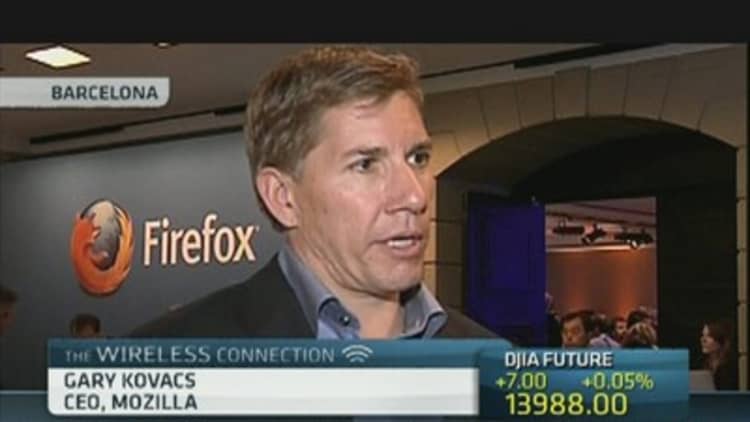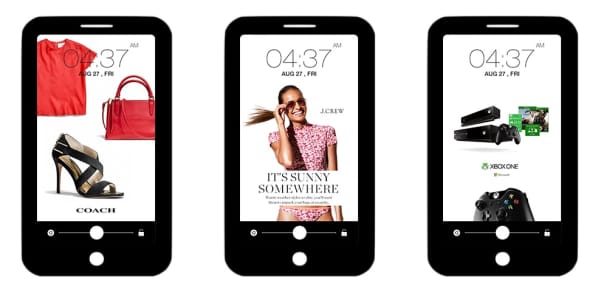Mozilla is hoping to do for the mobile phone industry what it did for browsers: offer more choice and a more open platform for developers.
The company launched its Firefox operating system (OS) for mobile at the Mobile World Congress in Barcelona, and the company's CEO Gary Kovacs told CNBC that while Apple and Google's operating systems have paved the way for large-scale adoption, their closed ecosystems will quickly fall out of favor.
"In the next five years we're going to double the internet population to about four or five billion people," Kovacs told CNBC's Kelly Evans. "There's no way one or two, or even five companies, can satisfy the curiosities, the needs, the desires, the dreams of five billion unique individuals."
Mozilla Firefox OS is based on the open web. The company hopes to get content providers to launch HTML5-based apps that phone users can access via any browser. That's different from native apps that need to be built for specific operating systems such as Apple's iOS or Android.
Mozilla hopes to weaken the Apple-Android axis and entice a huge network of developers. There are a staggering eight million web developers, compared to hundreds of thousands of developers for the iOS and Android platforms.
(Read More: Hottest Trends in Mobile Devices)
"We're providing a platform that all of those developers can now launch and create for, and that's what is going to give consumers the real difference that they're looking for," Kovacs said.
The company's success will depend on emerging markets, which provide an untapped source of potential smart phone users; the so-called "next billion".
According to Kovacs, what these people will want is online content from their local community, not from the wider world.

"The only thing that a consumer will ever care about is the content they can use on their device.That's it. They don't care about platforms," Kovacs said.
The company has already signed up 18 international carriers to its new platform, including Telefonica, America Movil, Sprint, Deutsche Telekom, and Telenor Group.
(Read More: Samsung's New Phone Will Debut on Apple's Turf)
Telefonica CEO Csar Alierta claimed the mobile world was going backwards due to its closed nature, and that Firefox was the key to a more democratic smart phone world.
"This is the first operating system which is based on the web," he told CNBC. "I think it's going to be a big success because that's what everybody wants: that's what customers want, that's what operators want; that's what developers want… The elements are there for the success."
Telefonica will launch Mozilla's operating system in Brazil,Colombia and Venezuela, as well as Spain. Deutsche Telekom will launch the operating system in Poland with Eastern Europe to follow, while Telenor Group will launch the service in Serbia, Hungary and Montenegro in the third quarter.
Affordability will be crucial but prices have not been confirmed. LG Electronics, ZTE, Alcatel One Touch and Huawei are the four confirmed manufacturers.
(Read More: Apple Wobbles as Mobile World's Walls Come Down)
Rolv-Erik Spilling, executive vice president of digital services at Telenor, said the Mozilla smart phones will be less high-end than Apple, suggesting a price tag somewhere between $50-100.
Ren Obermann, the CEO of Deutsche Telekom, said the competition Mozilla will introduce in terms of an operating system that allows for huge developer innovation will help drive down costs.
But there are still questions over whether Mozilla's operating system will work in more developed markets where Apple and Android reign supreme.
Even Obermann seemed cautious when asked whether it will work in the U.S. and Western Europe. "We'll see," he said. "We'll start in the more developing markets and then take it from there.It's too early to make any predictions."




